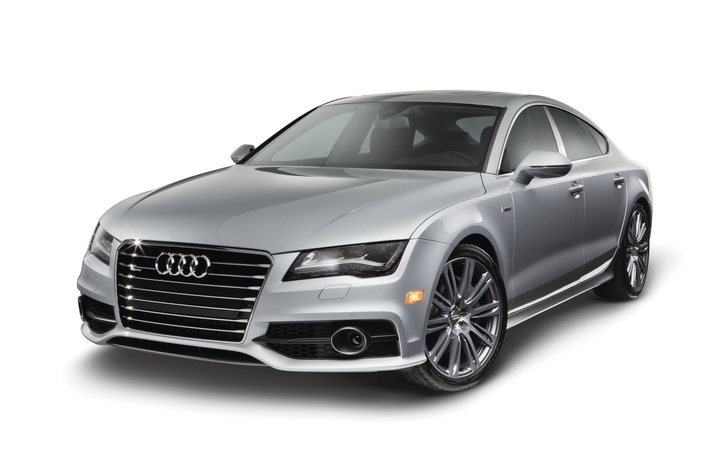Over the past few years, using the term ‘hybrid’ when describing a car makes it appear instantly greener to an increasingly gas-mileage obsessed public.
In fact, in some situations, using that particular word can even make a high-performance luxury car seem more desirable, even sexier.
So it’s no surprise that Audi has decided to describe its latest concept car as a ‘coasting hybrid’.
Enter Audi’s Intelligent Hybrid Vehicle (iHEV)concept, based on a 2012 Audi A7. While it is undoubtedly a car designed to improve gas mileage, its claim on the word 'hybrid' is at best, tenuous.
It is, in effect, a sophisticated stop-start system.
Nomenclature aside, the iHEV replaces the conventional starter motor found in most cars with a 48-volt heavy-duty motor which can quickly spin the engine back up to speed when required.
Unlike a true hybrid car however, in which the electric motor either provides motive power or assists the internal combustion engine with additional torque when required, the iHEV’s heavy-duty motor is only used to spin up the engine.
In fact, Audi’s iHEV operates much like a conventional stop-start system, switching off the engine when the car brakes or is at a standstill, turning it on again when required for acceleration.
The clever part comes in the software controlling the stop-start system, which Audi calls Predictive Efficiency Assist (PEA).

2013 Audi A7
Using GPS data, as well as information from the car itself, Audi says the PEA system can predict when the car’s engine isn’t needed, automatically idling the engine or switching it off completely, preparing it to coast down hills before it has even reached the crest of a hill.
The system, in a pre-development stage as Audi puts it, can also cut power or idle the iHEV’s engine before reaching an approaching speed limit, timing the engine cut-out so the car arrives at the new limit without braking.
The claims for the system are impressive.
According to Autocar, sources at Audi claimed the technology could let the car coast for almost a kilometer (0.6 miles) with the engine idled.
In a recent official test on 38 miles of winding country lanes, Audi claims the iHEV A7 prototype, fitted with a 3.0-liter turbocharged diesel engine, spent 28 percent of the trip with the engine idling and coasting enabled. For 43 percent of the trip, the PEA system was activated.
In total, Audi claims the fuel consumption for the trip was 10 percent less than a comparable A7, while journey time was increased by 2 minutes.
While Audi’s latest fuel-saving prototype technology appears to have what it takes to make substantial improvements to gas mileage, we’re still reluctant to call it a hybrid.
But what do you think?
Let us know your thoughts in the Comments below.
+++++++++++













